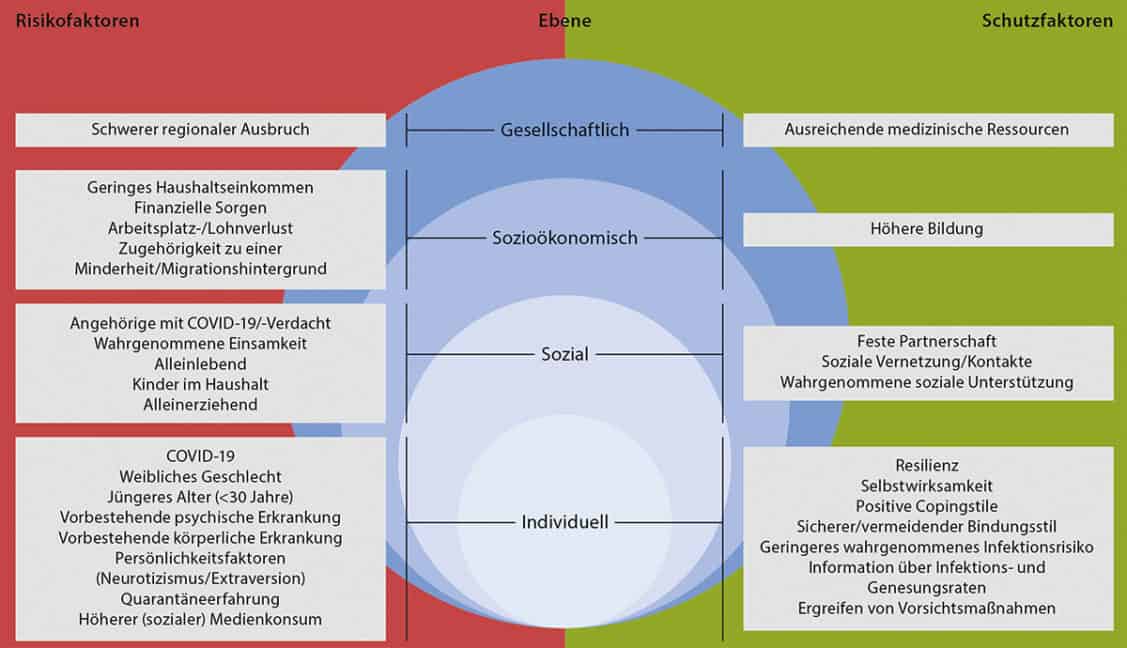Corona & the psyche - The "mechanical view" is where the greatest advances in medicine are made, where investments are made and where great successes are to be celebrated. Corona shows: We pay too little attention to our mental health Health.
The need to deal with our psyche socially and individually has by no means become a matter of course. The advances in this area are minimal by comparison. Covid-19 has brought this topic to the fore again and can be understood as an impetus. The task: Look where there seem to be more questions than answers, because there is hardly any measurability "objectively". An important question is, for example: How new are the findings about the psyche and pandemic really? It is clear that children are exposed to different stresses than adults, men different from women. Media reports and case studies show how deeply shocking the realities behind the numbers mentioned are often. Such as the significant increase in domestic violence as a result of the pandemic.
The faces of mental stress
What does not change is that anyone who was previously part of a vulnerable group is also the most affected here. This is particularly true of people who already had to deal with psychological stress before the pandemic - and that is far more than we generally want to accept.
Mental problems have familiar faces, and Covid-19 does not change that. What is actually different is their concentrated appearance as a result of the extraordinary circumstances. Their names are, for example, stress, fears, sleeping and eating disorders, substance abuse, burnout, depression, PTSD. Above all, the pandemic means one thing: we are all exposed to great pressures and restrictions on our living conditions at the same time. The extent to which the necessary adaptations negatively affect our mental health depends on many factors.


Source: Springer Medizin Verlag, Psychotherapeut 2021
Mental health protection
The results of the study situation around Covid-19 largely coincides with the general knowledge of mental protective factors. While biological and genetic preconditions certainly play a role, there is increasing consensus that our environment is the even more decisive factor in how severely people are affected by mental impairments in stressful situations.
The most important basis for the later robustness of the psyche are those imprints that take place in the context of our earliest ties. The research area that provides the most knowledge on these topics is recent trauma research - especially on attachment and developmental trauma. Because: A “trauma-free” life is impossible. But it makes a big difference which resources are available to deal with trauma. Processed traumas do not cause so-called trauma-related disorders.
Central protection factor connectedness
If you look at the background of psychological phenomena such as depression and co, you will find one thing above all in almost all biographies on closer inspection: You cannot acknowledge that a suffering has arisen at all - and that we humans are not made to deal with everything alone to have to finish.
The reasons for this can usually be found in the first bonds of our life and are essentially related to the resulting development of the autonomic nervous system. Have we learned that it is okay to have needs and wants? That it's ok to need help? That it's okay to make mistakes? That i'm ok the way i am?
If these very earliest experiences, often inaccessible to our memory, are positive - as an embryo and infant - this is shown, among other things, in an ability to establish stable relationships - and in the development of resilience. These two are the most basic protective factors when it comes to our mental health.
Make it salon-worthy
If there are suboptimal conditions in the background, what is needed above all is the ability to ask for help - and that requires a society that not only allows this, but promotes it. The most important step in this direction is to release the subject of mental health from the sole responsibility of the individual and to develop a climate in which it can be discussed. A climate in which it can be said that sometimes such a life is just really hard. A climate in which the suffering of the individual is not only attributed to her, to himself.
Because healing begins in society. Healing begins when we are able to care and turn to one another. If cohesion and sincere interest are possible in suffering, it is already half overcome.
Photo / Video: Shutterstock.



